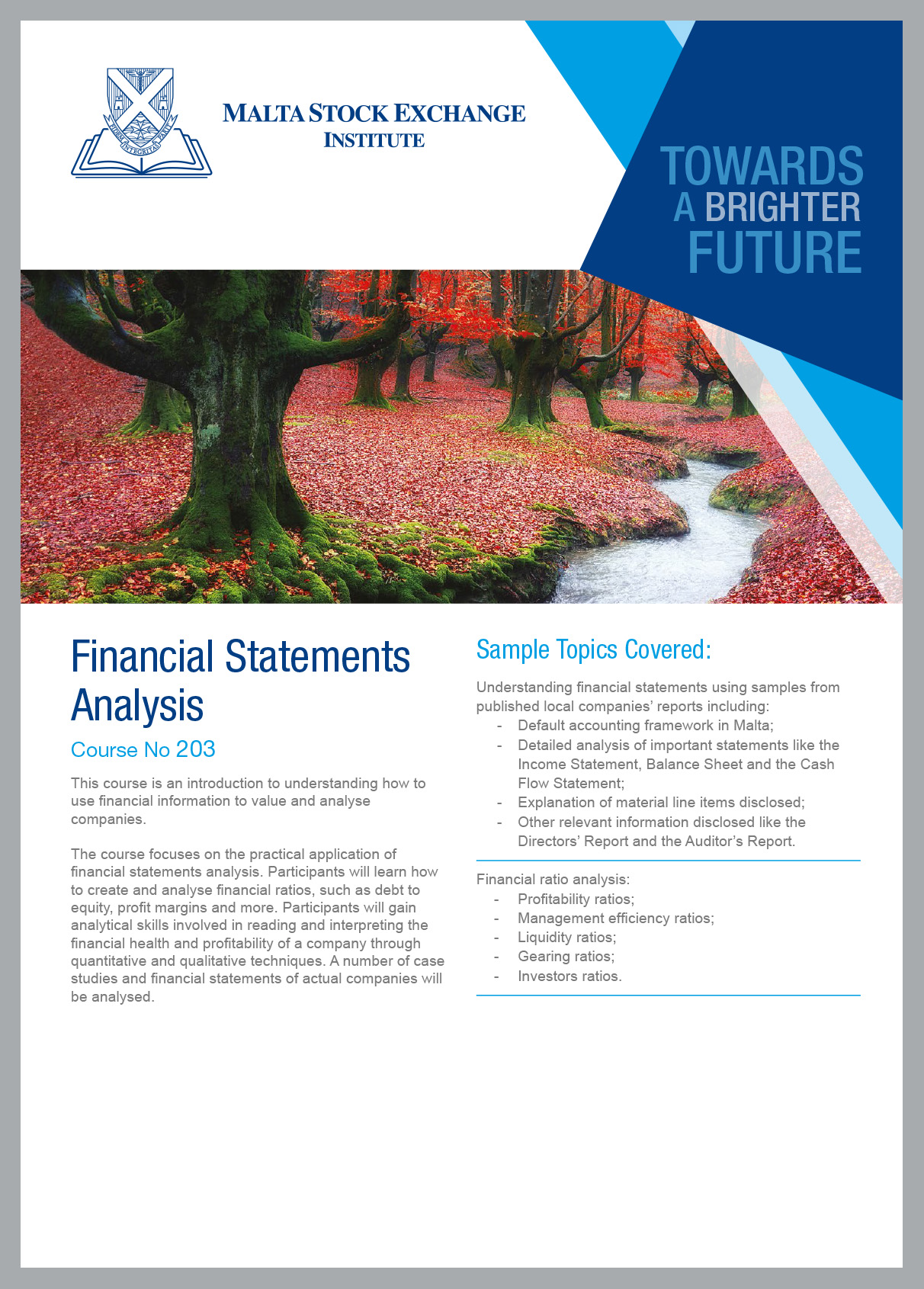
This course is an introduction to understanding how to use financial information to value and analyse companies. The course focuses on the practical application of financial statements analysis. Students will learn how to create and analyse financial ratios such as debt to equity, profit margins and more. Participants will gain analytical skills involved in reading and interpreting the financial health and profitability of a company through quantitative and qualitative techniques. A number of case studies and financial statements of actual companies will be analysed.
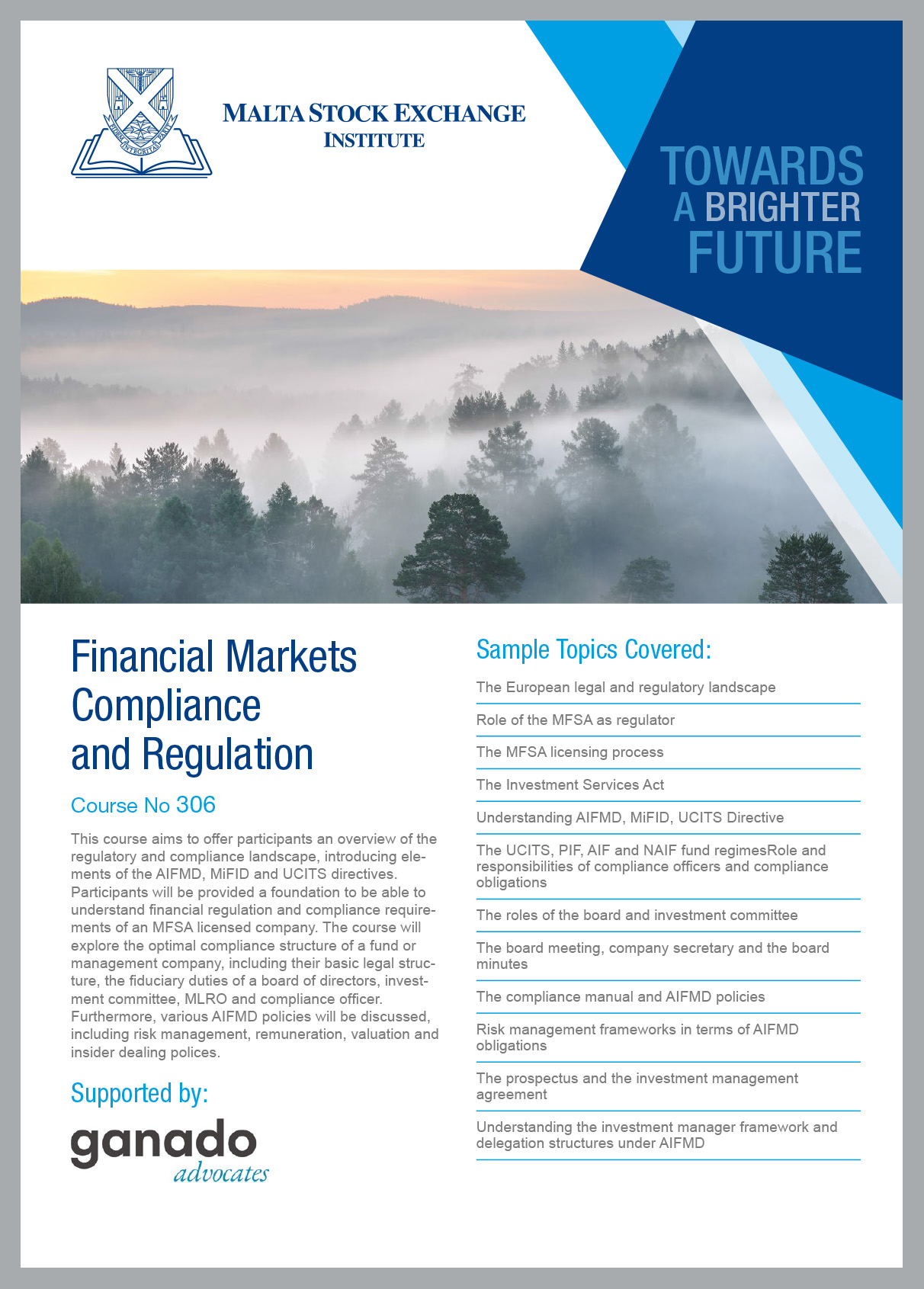
This course aims to offer participants an overview of the regulatory and compliance landscape by introducing elements of the AIFMD, MIFID, and UCITS directives. Students will be provided a foundation to be able to understand financial regulation and compliance requirements of an MFSA licensed company. The course will explore the optimal compliance structure of a fund or management company including their basic legal structure, the fiduciary duties of a board of directors, investment committee, MLRO, and compliance officer. Furthermore various AIFMD policies will be discussed including risk management, remuneration, valuation, insider dealing polices, etc.

This course will focus on the RICS Independent Review of Real Estate Investment Valuations, published in December 2021, which is a sector-changing document that includes a series of recommendations that aim to improve confidence in property investment valuations, and the process by which they are undertaken and reviewed around the world. The recommendations were UK orientated but the recommendations that related to discounted cash flow (DCF) valuations and analysis apply globally. This course is essential for enhancing property valuers and valuation users' understanding and proper application of the DCF method. Attendance to this course will add to the advancement of knowledge within real estate valuation practice globally.
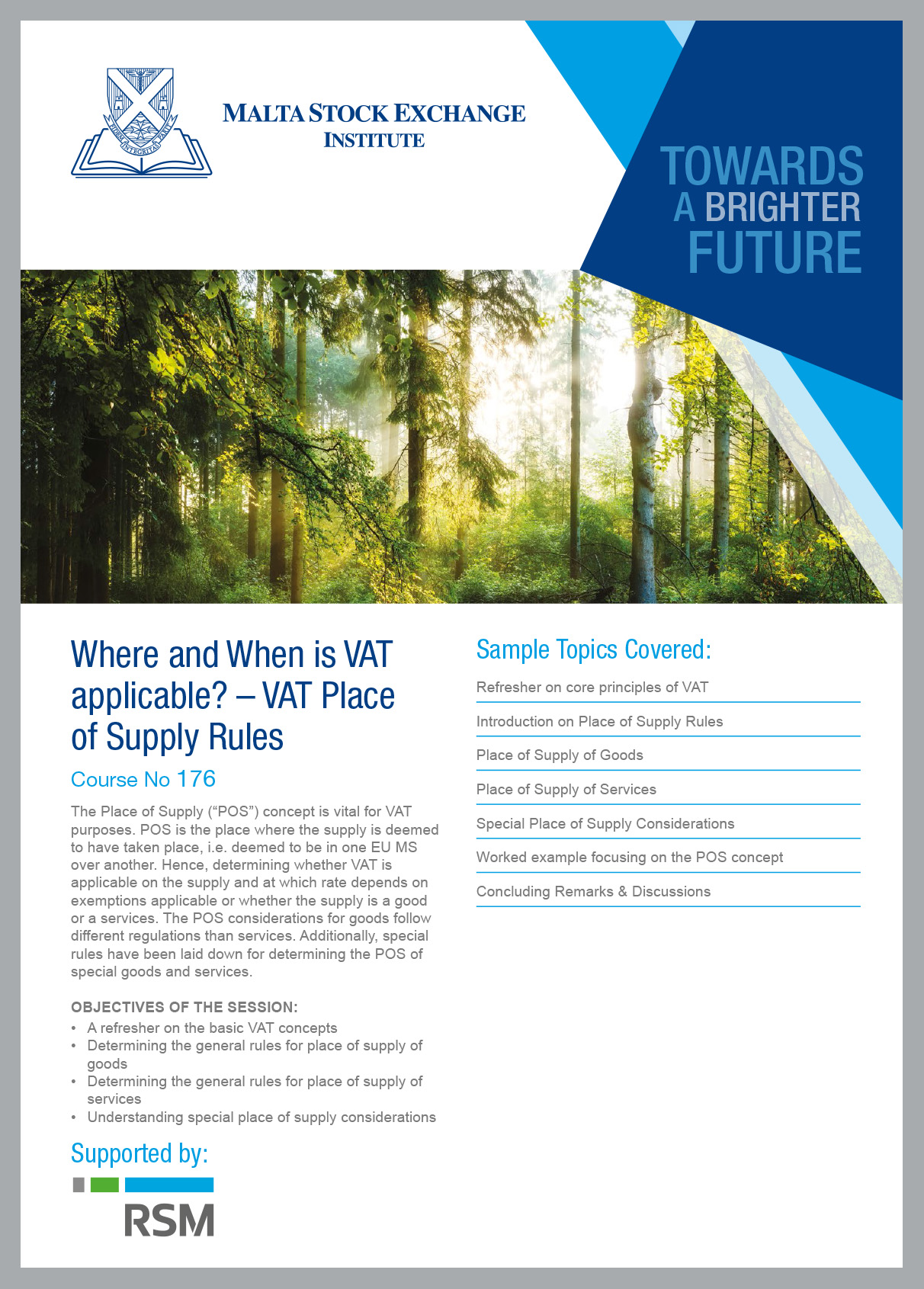
The Place of Supply (“POS”) concept is vital for VAT purposes. POS is the place where the supply is deemed to have taken place, i.e. deemed to be in one EU MS over another. Hence, determining whether VAT is applicable on the supply and at which rate depends on exemptions applicable or whether the supply is a good or a services. The POS considerations for goods follow different regulations than services. Additionally, special rules have been laid down for determining the POS of special goods and services. The objectives of the sessions are to create a refresher on the basic VAT concepts, determine the general rules for place of supply of goods and services and to understand special place of supply considerations.
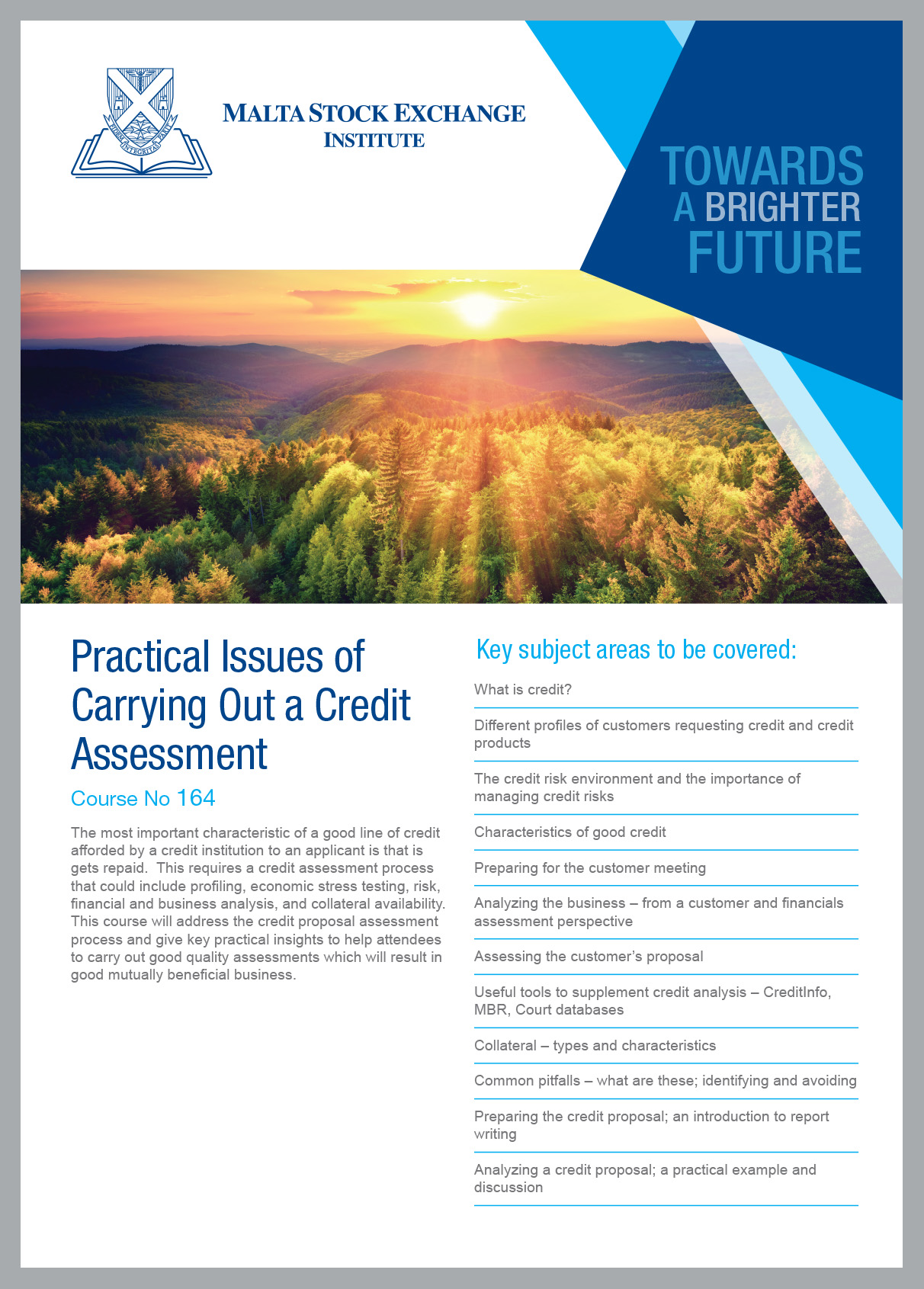
The most important characteristic of a good line of credit afforded by a credit institution to an applicant is that is gets repaid. This requires a credit assessment process that could include profiling, economic stress testing, risk, financial and business analysis, and collateral availability. This course will address the credit proposal assessment process and give key practical insights to help attendees to carry out good quality assessments which will result in good mutually beneficial business.
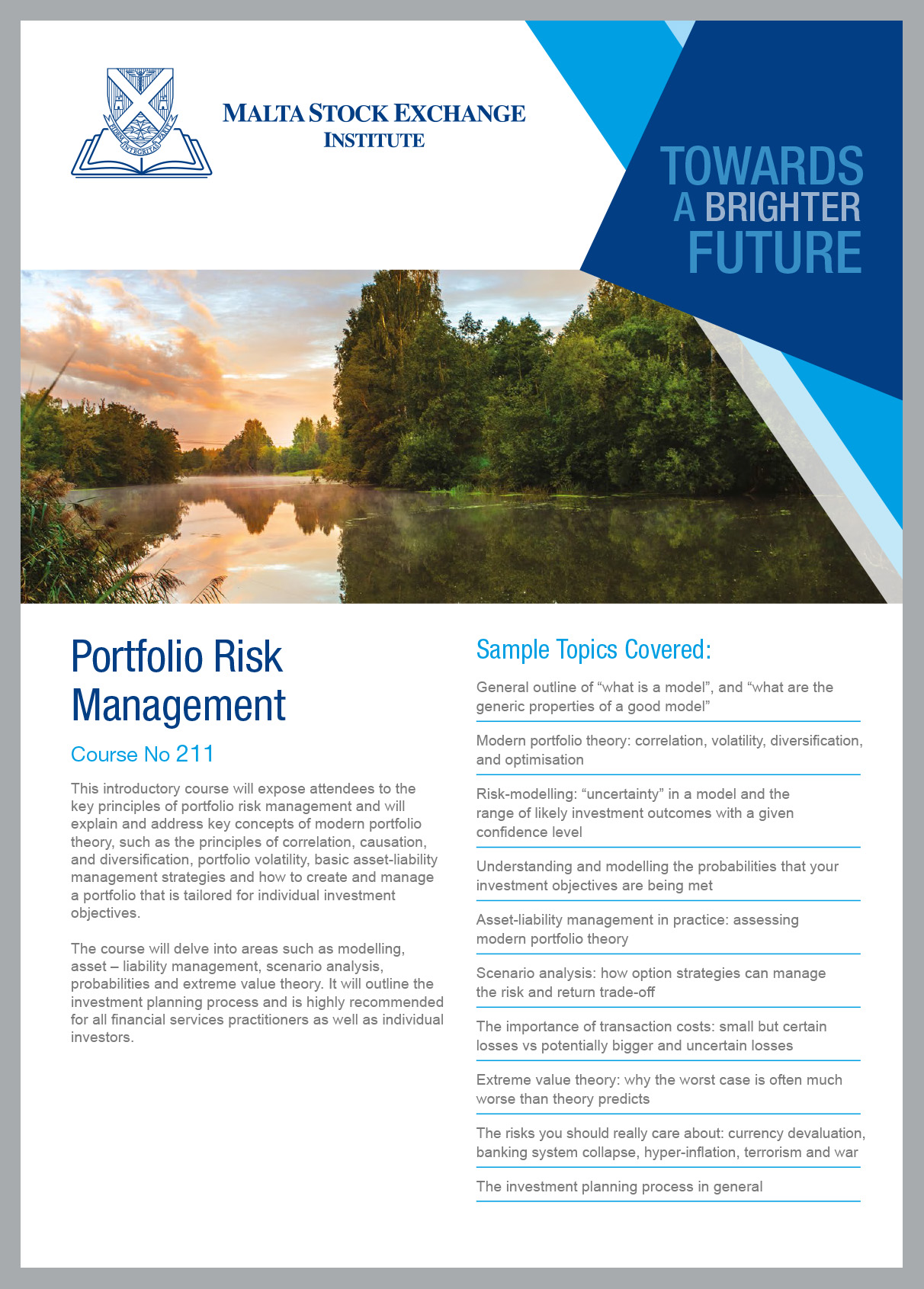
This course will introduce attendees to the key principles of portfolio risk management and will explain and address key concepts of modern portfolio theory such as the principles of correlation, causation, and diversification, portfolio volatility, basic asset-liability management strategies and how to create and manage a portfolio that is tailored for individual investment objectives. The course will delve into areas such as modelling, asset – liability management, scenario analysis, probabilities and extreme value theory. It will outline the investment planning process and is highly recommended for all financial services practitioners as well as individual investors.
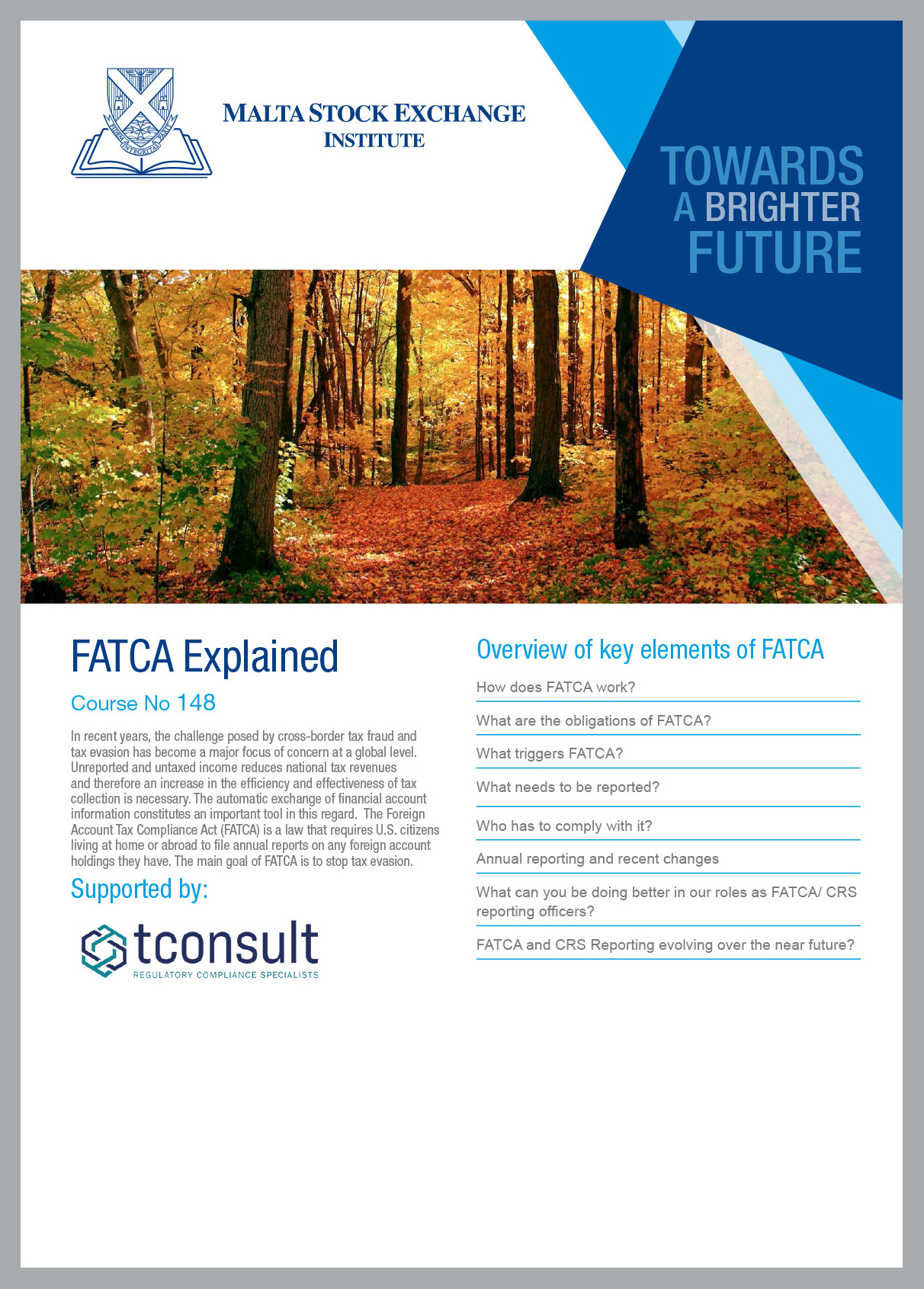
In recent years, the challenge posed by cross-border tax fraud and tax evasion has become a major focus of concern at a global level. Unreported and untaxed income reduces national tax revenues and therefore an increase in the efficiency and effectiveness of tax collection is necessary. The automatic exchange of financial account information constitutes an important tool in this regard. The Foreign Account Tax Compliance Act (FATCA) is a law that requires U.S. citizens living at home or abroad to file annual reports on any foreign account holdings they have. The main goal of FATCA is to stop tax evasion.

‘Beneficial owner’ means any natural person who ultimately owns or controls a legal entity or express trust or similar legal arrangement, as well as any natural person on whose behalf or for the benefit of whom a transaction or activity is being conducted. Beneficial ownership transparency is an item of high priority at a global, EU and local level. In view of Malta’s previous greylisting, beneficial ownership concealment has been a high-priority agenda item locally, with a number of thematic visits taking place by the regulator. This area is fundamental to AML and needs to be given due importance; this course will help compliance practitioners to carry out their role more effectively.
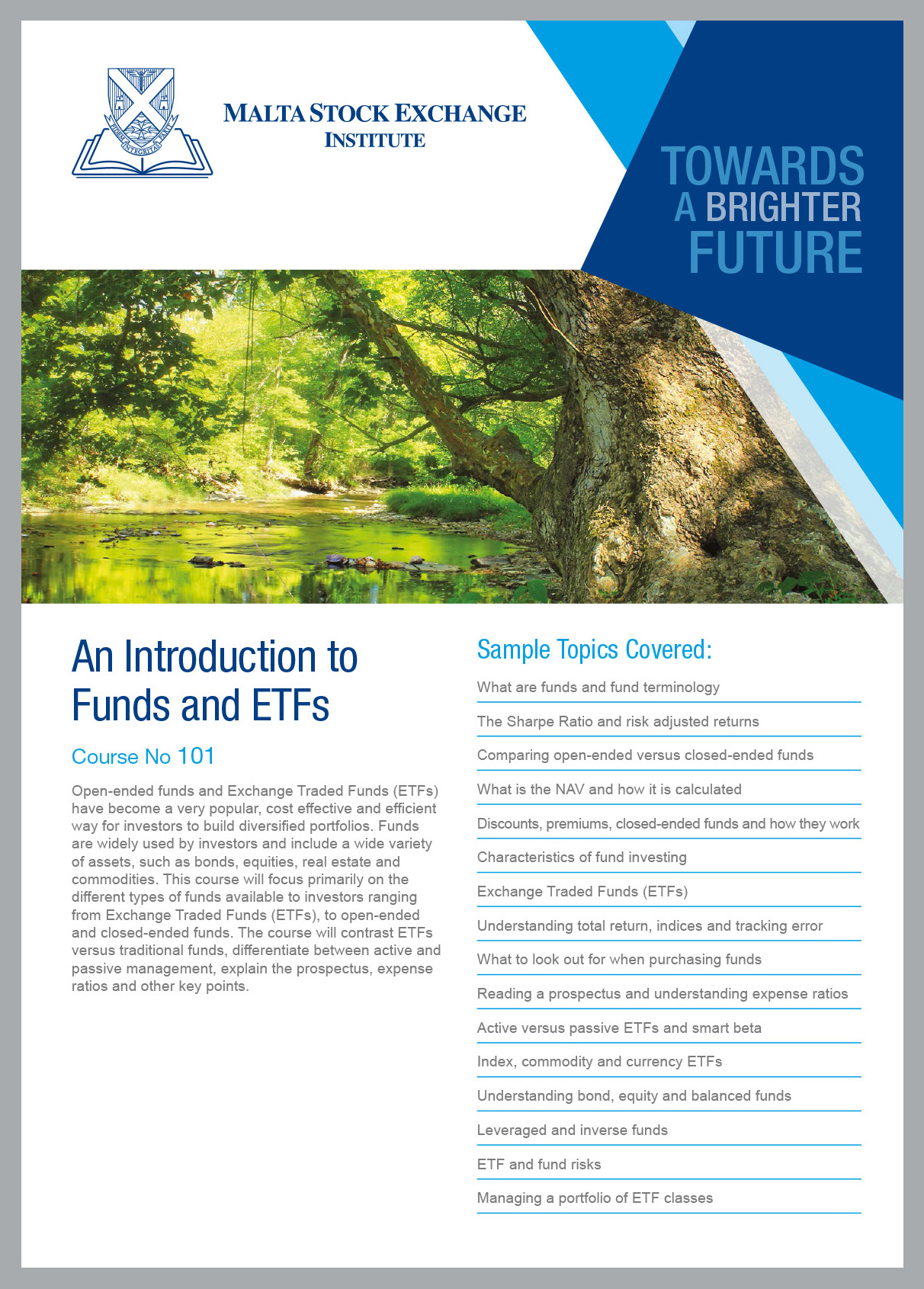
Open-ended funds and Exchange Traded Funds (ETFs) have become very popular, cost-effective and efficient ways for investors to build diversified portfolios. Funds are widely used by investors and include a wide variety of assets including bonds equities, real-estate and commodities. This course will focus primarily on the different types of funds available to investors ranging from Exchange Traded Funds (ETFs), to open-ended and closed-ended funds. The course will contrast ETFs versus traditional funds, differentiate between active and passive management, explain the prospectus, expense ratios and other key points.
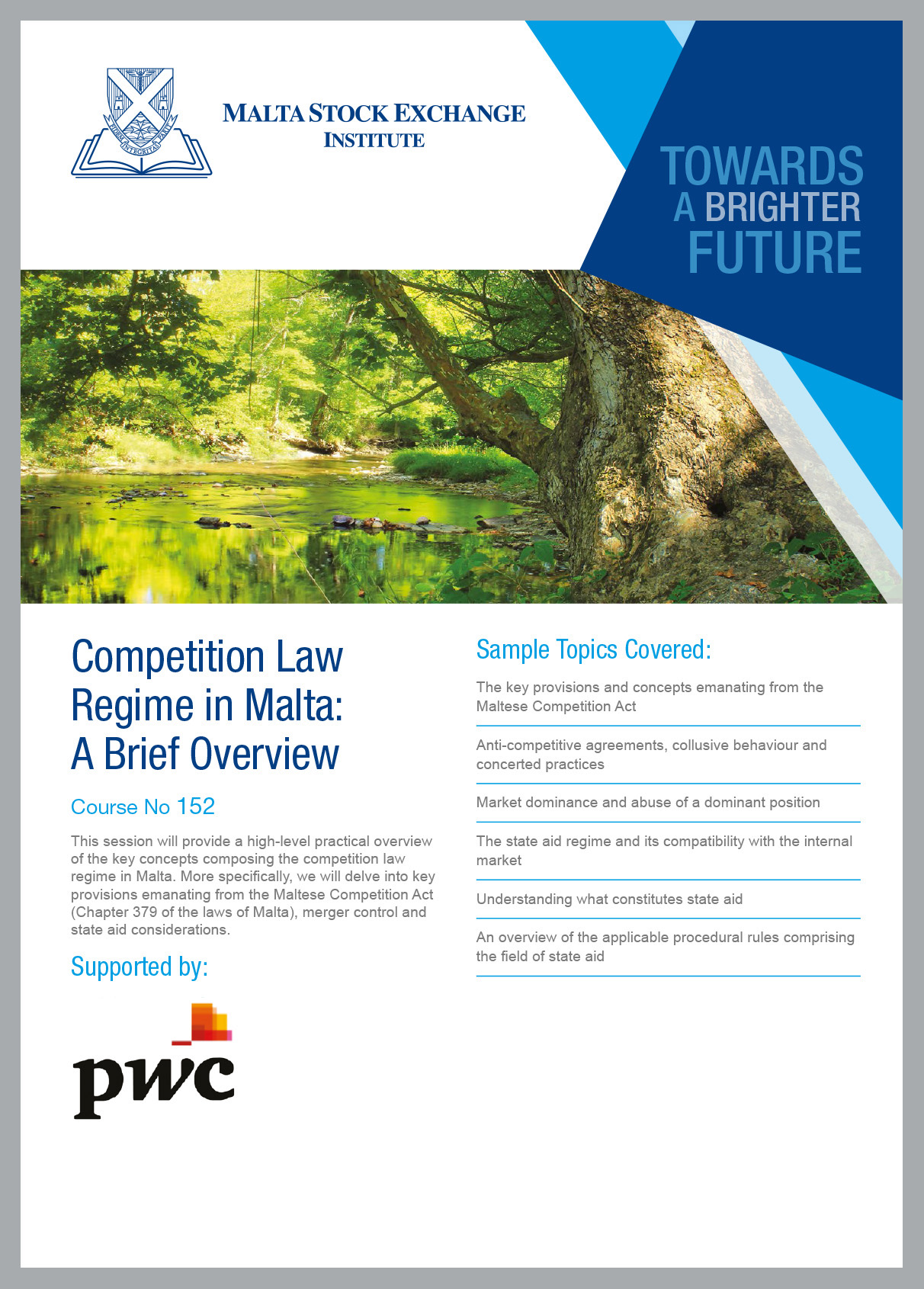
This session will provide a high-level practical overview of the key concepts composing the competition law regime in Malta. More specifically, we will delve into key provisions emanating from the Maltese Competition Act (Chapter 379 of the laws of Malta), merger control and state aid considerations.
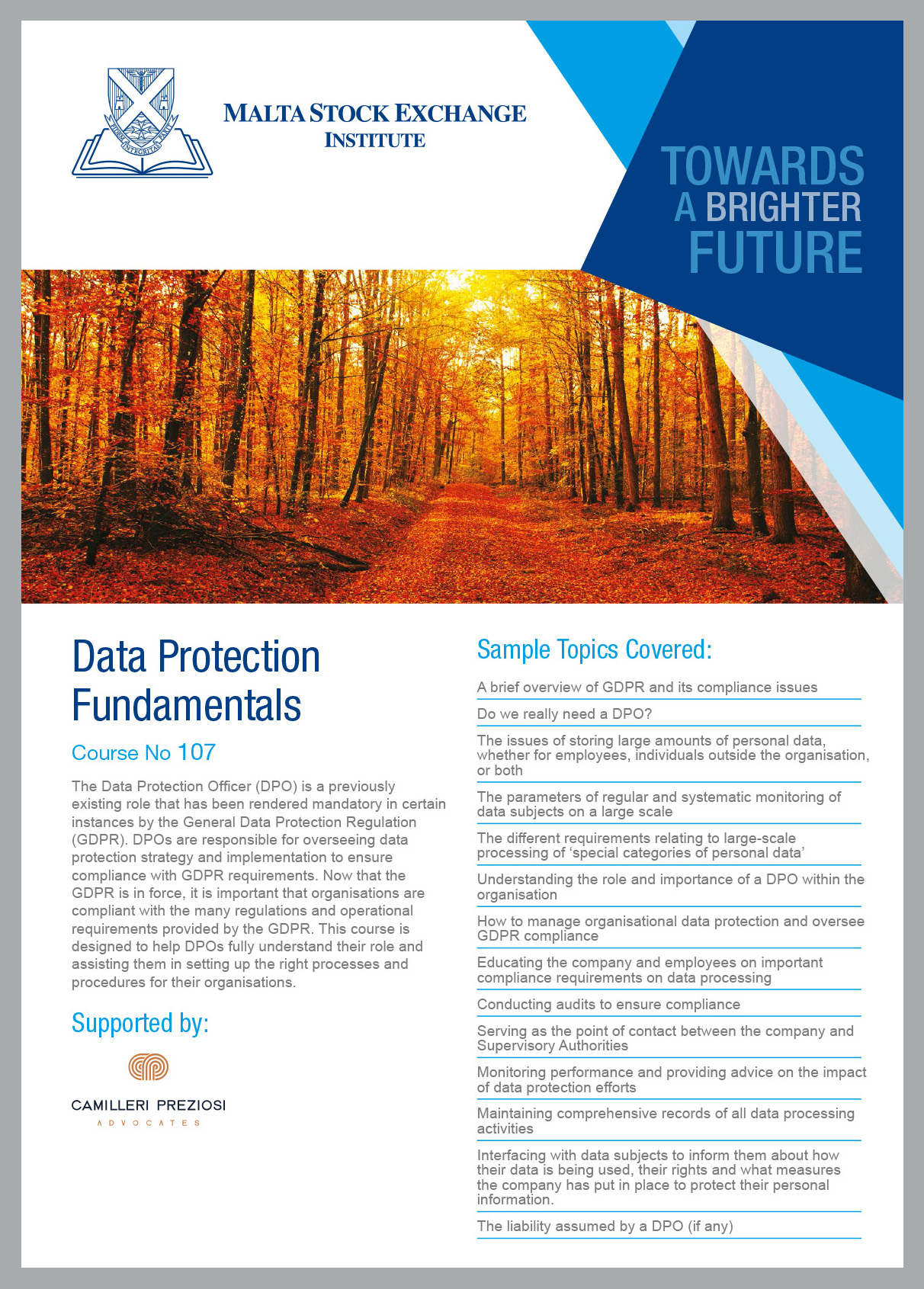
The Data Protection Officer (DPO) is a previously existing role that has been rendered mandatory in certain instances by the General Data Protection Regulation (GDPR). DPOs are responsible for overseeing data protection strategy and implementation to ensure compliance with GDPR requirements. Now that the GDPR is in force, it is important that organisations are compliant with the many regulations and operational requirements provided by the GDPR. This course is designed to help DPOs fully understand their role, assisting them in setting up of the right processes and procedures as well as control measures and helping DPOs determine whether the appointment of a DPO is mandatory for their organisation. In view of this and the significant possible consequences of noncompliance, it is recommended that DPOs attend this course.
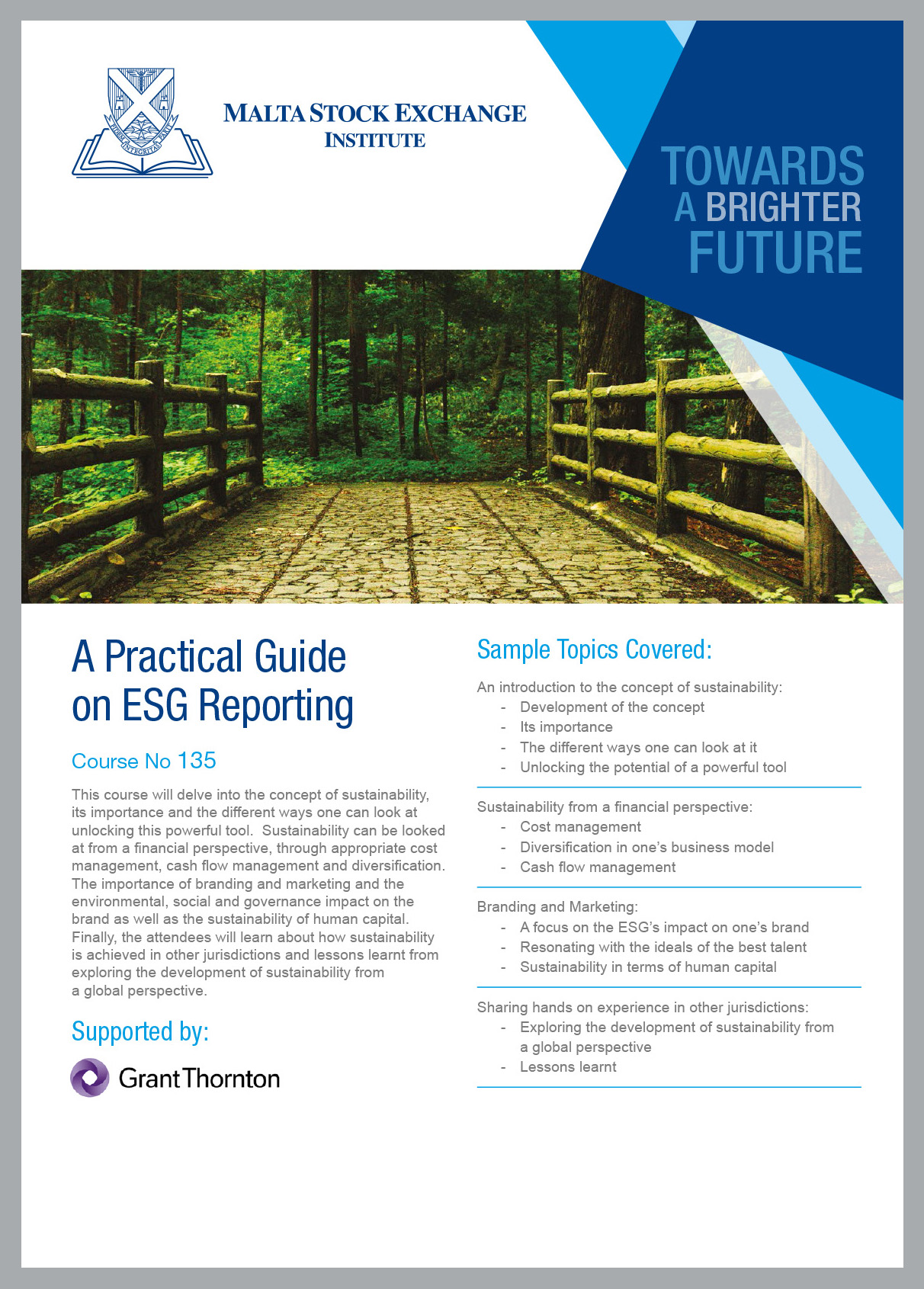
This course will delve into the concept of sustainability, its importance and the different ways one can look at unlocking this powerful tool. Sustainability can be looked at from a financial perspective, through appropriate cost management, cash flow management and diversification. The importance of branding and marketing and the environmental, social and governance impact on the brand as well as the sustainability of human capital. Finally, the attendees will learn about how sustainability is achieved in other jurisdictions and lessons learnt from exploring the development of sustainability from a global perspective.
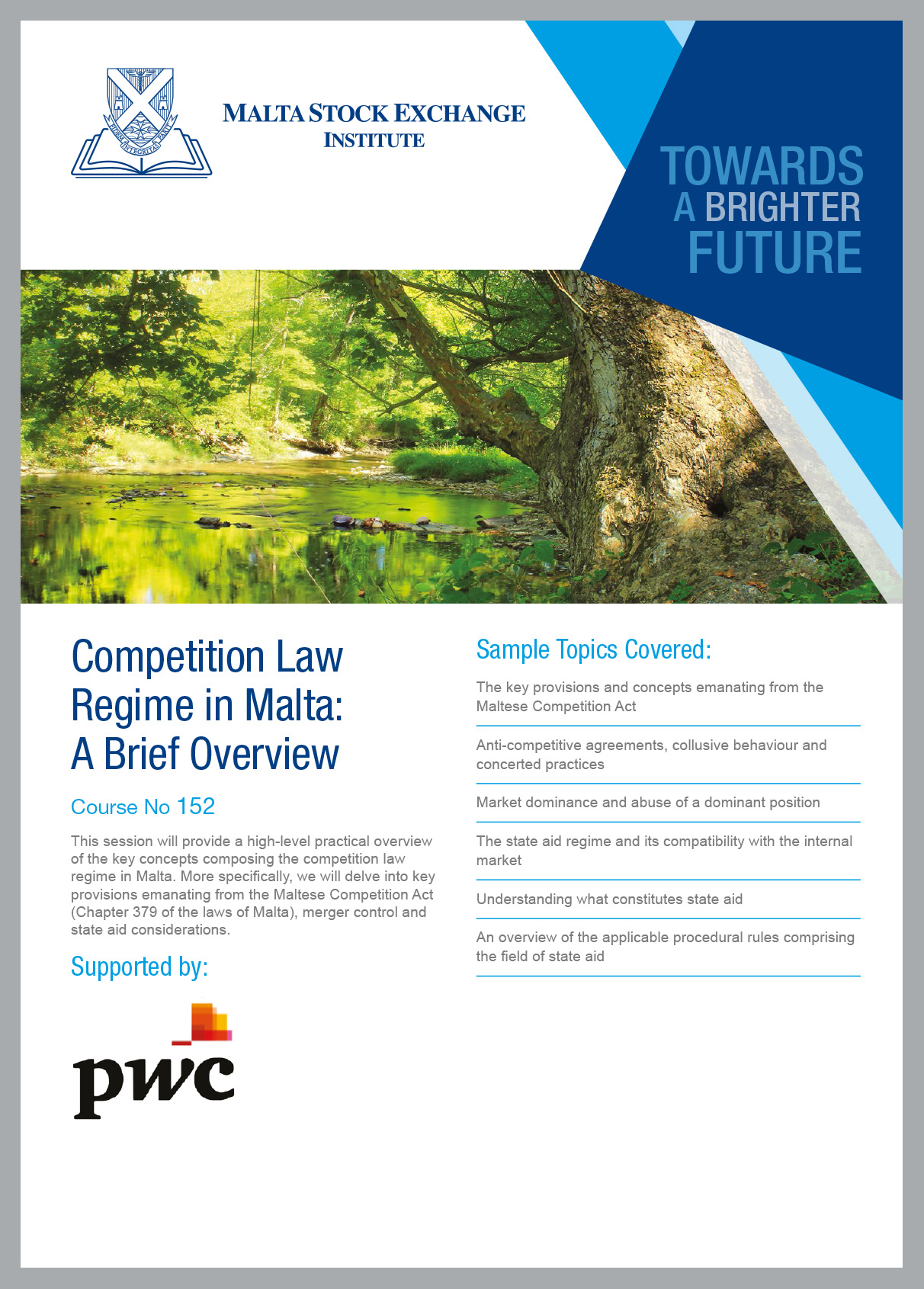
This session will provide a high-level practical overview of the key concepts composing the competition law regime in Malta. More specifically, we will delve into key provisions emanating from the Maltese Competition Act (Chapter 379 of the laws of Malta), merger control and state aid considerations.

Modern management is more often than not faced with clear dilemma on how to optimise the use of available limited resources. The same can be said of all of us who constantly attempt to make the best use of personal resources. During this training session, we will explore personal budgeting essentials, identifying limiting factors that constrain all budgeting decisions, sources and types of resources, categorising expenditure and how to focus on necessary expenditure. Areas such as prioritising and the time value of money and preparing for the unexpected will also be addressed. Personal budgets are strategies for personal success and one’s personal objectives should always be in the background of any personal budget.

Shareholders of private companies often may encounter difficulty when it comes to establishing a value of their business. This course will address the concept of valuations, through company and goodwill analysis, financial modelling and valuation based on net asset values, all of which may come up with different results! This is an interesting and thought provoking course for 'non accountant' shareholders who are interested to learn more about company financial analysis with special focus on how to value a company.
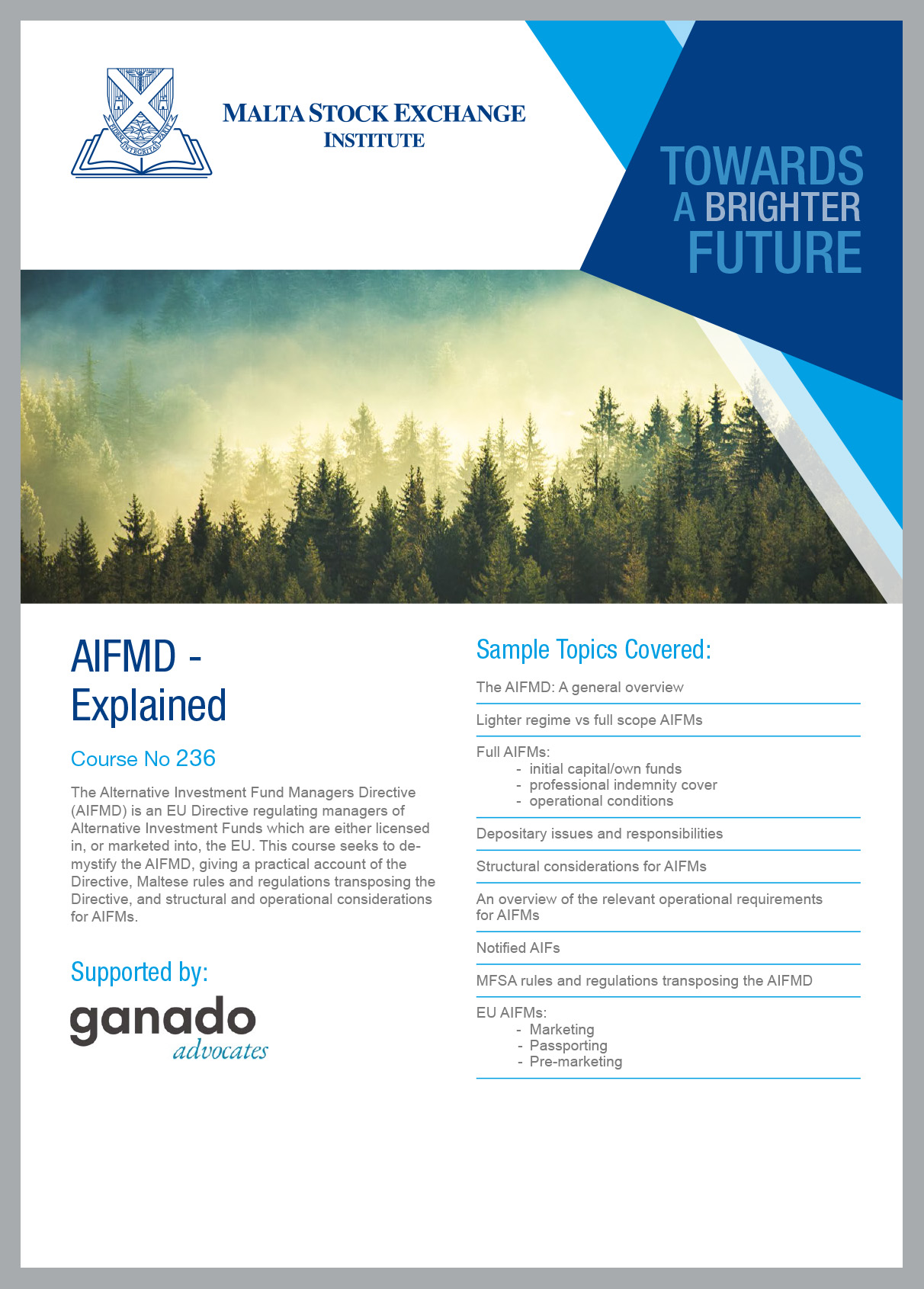
The Alternative Investment Fund Managers Directive (AIFMD) is an EU Directive regulating managers of Alternative Investment Funds which are either licensed in, or marketed into, the EU. This course seeks to de-mystify the AIFMD, giving a practical account of the Directive, Maltese rules and regulations transposing the Directive, and structural and operational considerations for AIFMs.
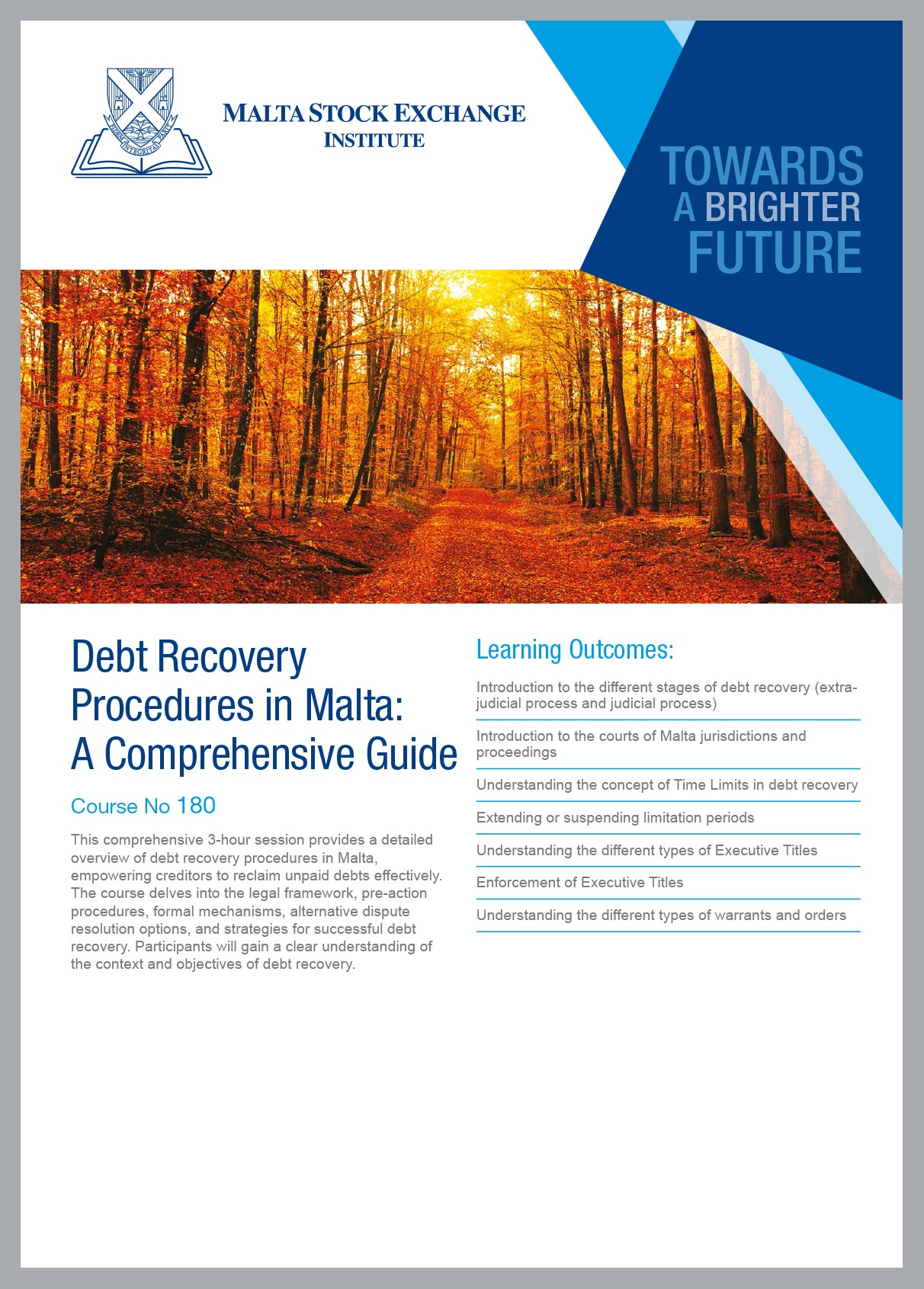
This comprehensive 3-hour session provides a detailed overview of debt recovery procedures in Malta, empowering creditors to reclaim unpaid debts effectively. The course delves into the legal framework, pre-action procedures, formal mechanisms, alternative dispute resolution options, and strategies for successful debt recovery. Participants will gain a clear understanding of the context and objectives of debt recovery.
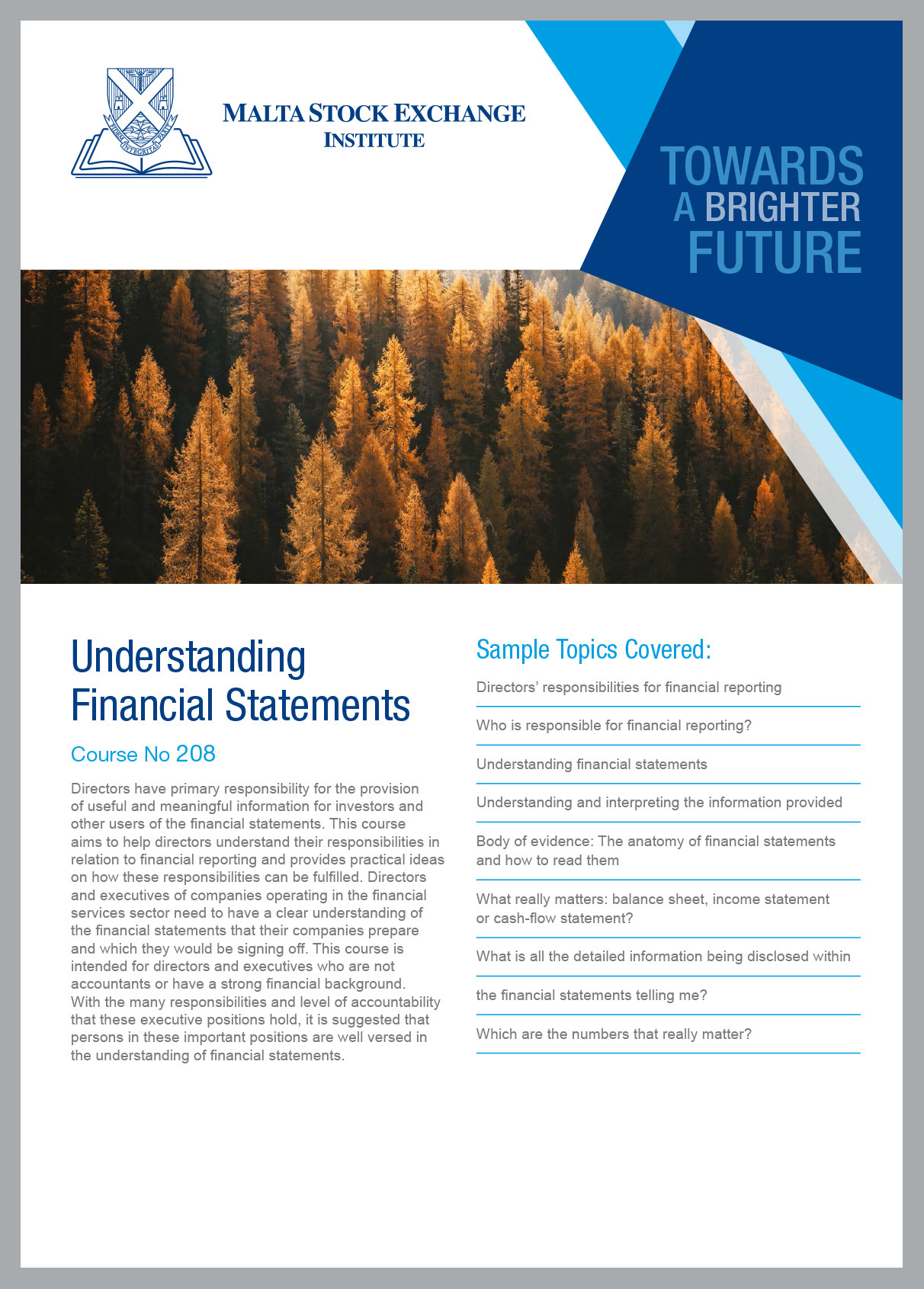
Directors and executives of companies operating in all sectors need to have a clear understanding of the financial statements that their companies prepare and which they would be signing off. This course is aimed at directors and executives who are not accountants or have a strong financial background. With the many responsibilities and level of accountability that these executive positions hold, it is suggested that persons in these important positions are well versed in the understanding of financial statements.

As far as the creation of AML and Financial Crime Compliance policies is concerned, the gatekeeper, controller and the place where the “buck stops”, is the MLRO. This is a critically important position within any firm covered by AML Rules. When it comes to the identification, detection, escalation, reporting, managing and training of staff on Anti-Money Laundering procedures, it is the responsibility of the MLRO to ensure this all happens as effectively and efficiently as possible.
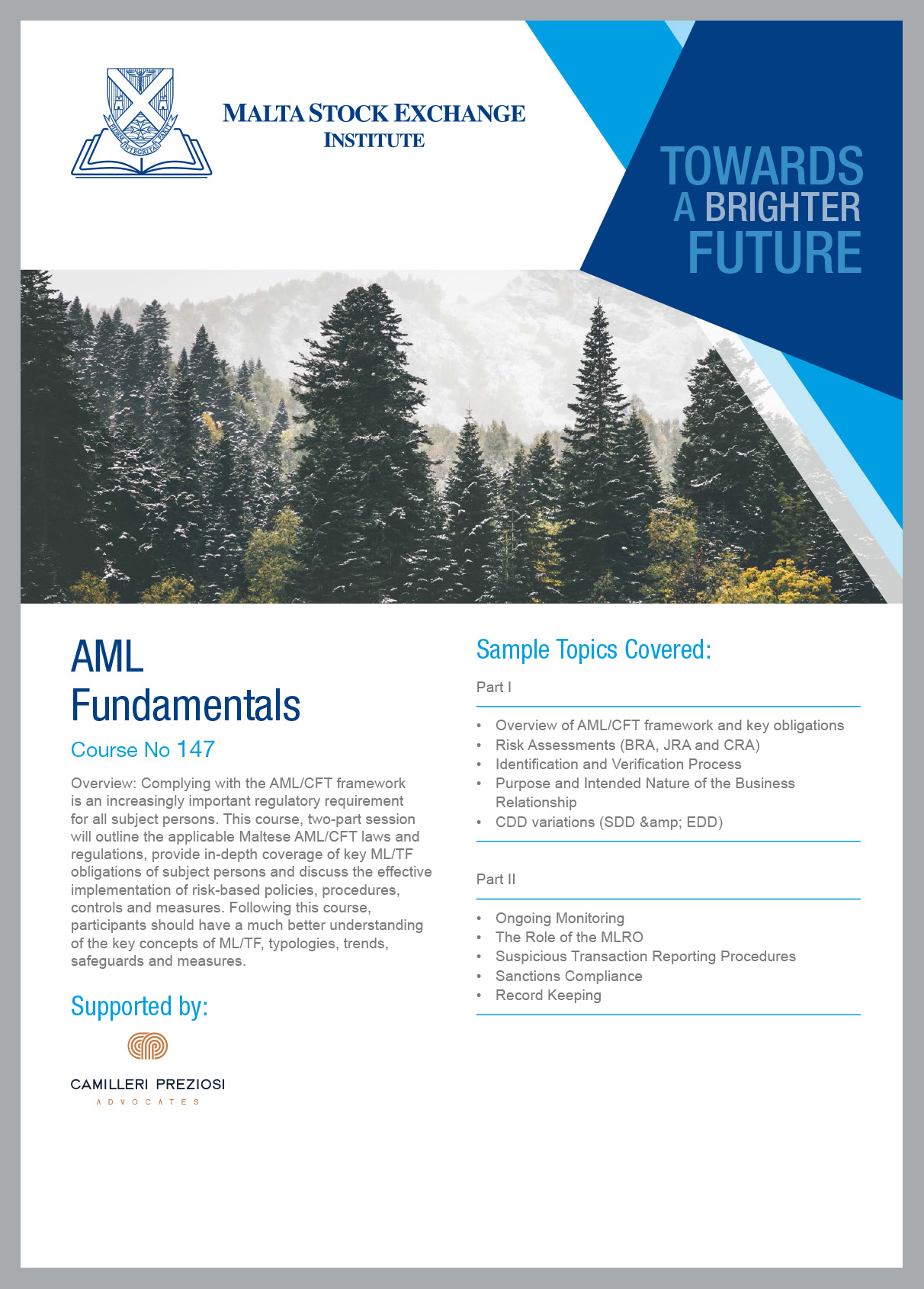
Complying with the AML/CFT framework is an increasingly important regulatory requirement for all subject persons. This course, two-part session will outline the applicable Maltese AML/CFT laws and regulations, provide in-depth coverage of key ML/TF obligations of subject persons and discuss the effective implementation of risk-based policies, procedures, controls and measures. Following this course, participants should have a much better understanding of the key concepts of ML/TF, typologies, trends, safeguards and measures.